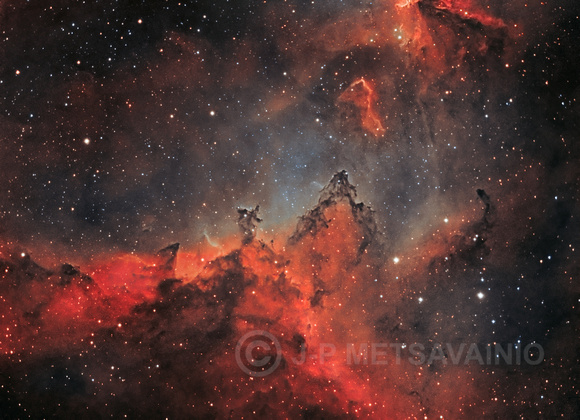A blog post about this object with more info and images.The "Heart Nebula", IC1805 locates about 7500 light years away in constellation Cassiopeia. This is an emission nebula showing glow of ionized elements in a gas cloud and some darker dust lanes.
In a very center of the nebula, lays Melotte 15, it contains few very bright stars, nearly 50 times mass of our Sun, and many dim ones. The solar wind, a radiation pressure, from massive stars makes the gas twist to a various shapes.
Technical detailsProcessing work flow:
Image acquisition, MaxiDL v5.07.
Stacked and calibrated in CCDStack2.
Levels, curves and color combine in PS CS3.
Optics, Meade LX200 GPS 12" @ f5
Camera, QHY9
Guiding, SXV-AO, an active optics unit, and Lodestar guide camera 8Hz
Image Scale, ~0,8 arc-seconds/pixel
18 x 1200s exposures for the H-alpha, emission of ionized Hydrogen = 6h
Narrowband cahnnels for ionized Oxygen and Sulfur are taken from an
older wide field images


